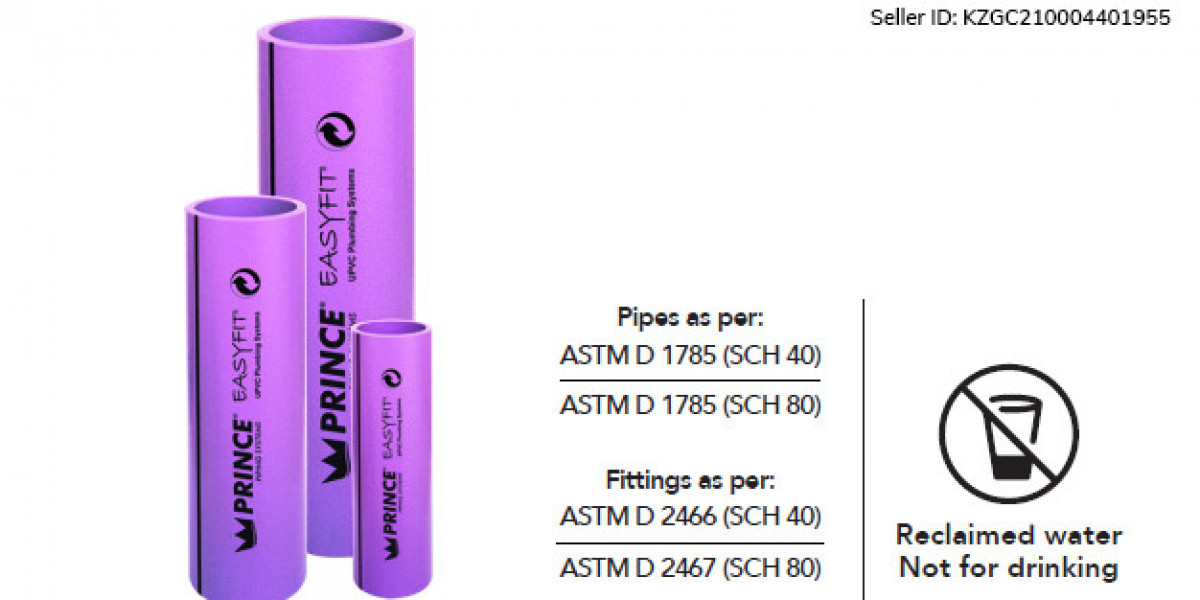Agricultural borewell systems are used for irrigation, and selecting the right pipe ensures long-term efficiency and durability. The most common pipes used in borewell applications are PVC, HDPE, and GI. Each of these materials has its benefits, and picking the right one varies based on soil conditions, water quality, and the farm's specific requirements.
- PVC pipes
PVC pipes are used in borewell systems due to their affordability and ease of installation. They are lightweight, corrosion-resistant, and relatively inexpensive, making them a popular choice for farmers. PVC pipes are available in various grades, and those used for borewell applications usually have a higher-pressure rating to withstand the forces in underground water systems.
High-quality PVC pipe fittings enhance the borewell systems by ensuring secure and leak-proof connections.
Benefits
- PVC pipes are resistant to chemicals, corrosion, and environmental factors, which increases their longevity.
- PVC pipes are cost-effective than other materials, offering great value for money in the long run.
- Their smooth inner surfaces help minimise friction, improve water flow and use energy efficiently.
- HDPE pipes
HDPE pipes are flexible, strong, and resistant to environmental factors like rain and sun damage. Made from high-density polyethene, they are ideal for areas where the soil is unstable, and the pipe system needs to be flexible. HDPE pipes are also resistant to abrasion, corrosion, and UV radiation, making them the best choice for agricultural use. Checking the latest HDPE pipe price list helps select the best option for borewell applications.
Benefits
- HDPE pipes are resistant to corrosion, scaling, and UV degradation, which makes them highly durable in harsh environmental conditions.
- While HDPE pipes are more expensive initially, their long lifespan and resistance to wear and tear make them a good long-term investment. HDPE pipes are available in various pressure ratings, which impacts their pricing.
- These pipes' high tensile strength handles high pressures, making them ideal for deep borewells. The smooth surface reduces friction, improving water flow efficiency.
- GI pipes
GI pipes are commonly used in older borewell systems. They are coated with zinc, which prevents them from rusting. GI pipes are robust and can handle high pressure, making them a reliable choice for certain agricultural applications.
Benefits
- Galvanised iron is durable enough to withstand the mechanical stress associated with underground installations. However, the zinc coating may wear off over time, leading to rust and corrosion.
- Their initial cost is higher, but their strength and longevity make them a practical choice for certain applications.
- While GI pipes offer excellent mechanical strength, their inner surfaces may accumulate scale or rust over time, reducing water flow efficiency.
Conclusion
The choice between PVC, HDPE, and GI pipes depends on various factors, including the local soil type, climate, and the borewell system's specific needs. Each pipe has unique advantages concerning durability, cost, and efficiency, and selecting the right material ensures the longevity and optimal performance of the borewell irrigation system.






